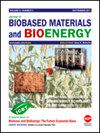Effect of a Self-Made Herbal Decoction Containing Angelica sinensis Combined with an Enhanced Recovery After Surgery Nursing Model on Anxiety, Depression, and Ovarian Function in Patients Undergoing Myomectomy
IF 0.5
4区 医学
引用次数: 0
Abstract
Angelica sinensis (A. sinensis), a traditional Chinese medicine (TCM), can tonify the blood, promote circulation, and nourish the body. This study investigates the potential of A. sinensis extract in improving ovarian function at the molecular level and its combined effects with other natural medicinal herbs in patients undergoing myomectomy. The impact of A. sinensis extract was assessed using a rat model of premature ovarian insufficiency. The rats were divided into four groups: control group, model group, low-dose Angelica group, and high-dose Angelica group. Serum levels of estradiol (E2), luteinizing hormone (LH), and follicle-stimulating hormone (FSH) were determined, and the pathology of ovarian tissue was examined. The results revealed elevated expressions of E2, nuclear factor erythroid 2-related factor 2 (Nrf-2), and heme oxygenase-1 (HO-1) in the treated groups compared to the model group, along with decreased levels of LH, FSH, interleukin (IL)-4, IL-6, and tumor necrosis factor-α. In a clinical trial involving patients after myomectomy, the efficacy of a combination of TCM decoction containing A. sinensis and enhanced recovery after surgery nursing model was evaluated with anxiety, depression, and ovarian function as indicators. The observation group exhibited reduced levels of anxiety and depression, along with improved ovarian function compared to the control group. Moreover, it was observed that A. sinensis extract demonstrated the potential in enhancing ovarian function through molecular pathways, possibly involving Nrf-2/HO-1 signaling. These findings provide insights into novel therapeutic approaches for promoting ovarian health and emphasize the benefits of integrating traditional medicine with modern care strategies.含当归的自制草药煎剂与术后康复护理模式相结合对子宫肌瘤切除术患者焦虑、抑郁和卵巢功能的影响
当归(a . sinensis)是一种传统的中药(TCM),可以补血,促进循环,滋养身体。本研究从分子水平探讨了五倍子提取物改善子宫肌瘤切除术患者卵巢功能的潜力及其与其他天然草药的联合作用。采用卵巢功能不全大鼠模型,评价了白荆提取物的作用。将大鼠分为4组:对照组、模型组、当归低剂量组、当归高剂量组。测定血清雌二醇(E2)、促黄体生成素(LH)、促卵泡生成素(FSH)水平,并检查卵巢组织病理学。结果显示,与模型组比较,治疗组E2、核因子-红细胞2相关因子2 (Nrf-2)、血红素加氧酶-1 (HO-1)表达升高,LH、FSH、白细胞介素(IL)-4、IL-6、肿瘤坏死因子-α水平降低。在一项子宫肌瘤切除术后患者的临床试验中,以焦虑、抑郁、卵巢功能为指标,评价中药含五倍子汤剂联合术后增强恢复护理模式的疗效。与对照组相比,观察组的焦虑和抑郁水平有所降低,卵巢功能也有所改善。此外,我们还观察到紫荆提取物可能通过Nrf-2/HO-1信号通路等分子途径增强卵巢功能。这些发现为促进卵巢健康的新治疗方法提供了见解,并强调了将传统医学与现代护理策略相结合的好处。
本文章由计算机程序翻译,如有差异,请以英文原文为准。
求助全文
约1分钟内获得全文
求助全文

 求助内容:
求助内容: 应助结果提醒方式:
应助结果提醒方式:


